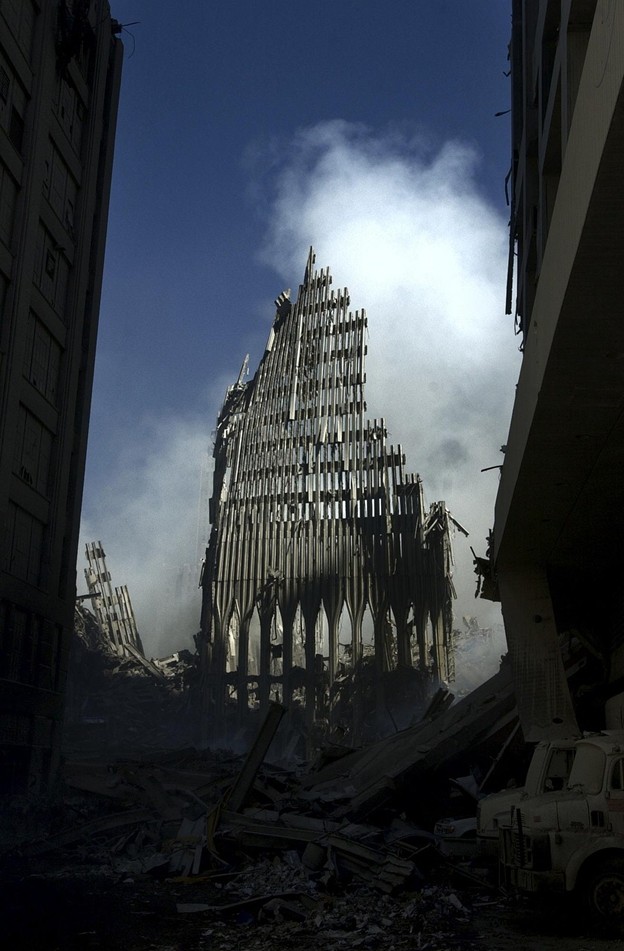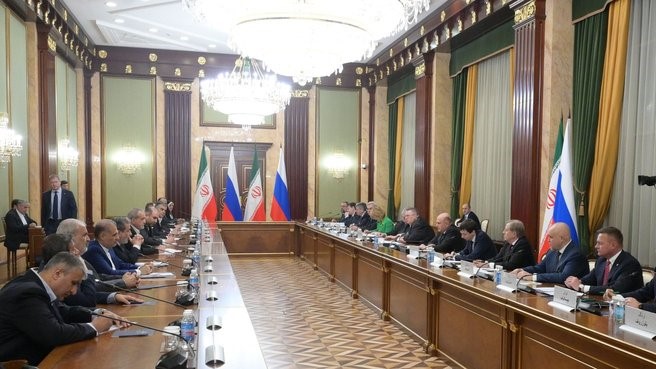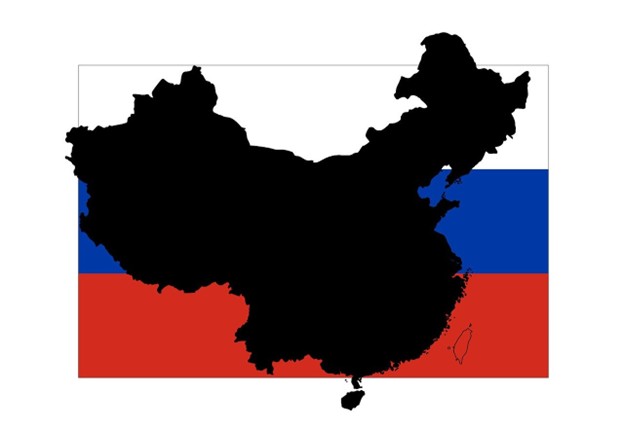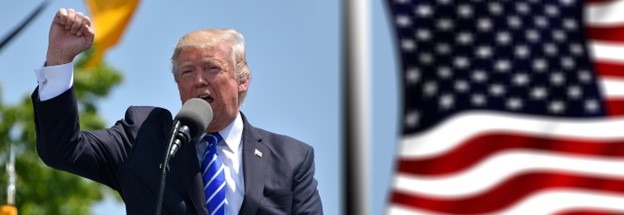After Trump’s conviction, there were many who called for the incarceration of the 45th and now 47th President. One typical sentiment was reported by Politico, “'[t]his is not a one-off, ‘Oops, I made a mistake on my business records,’ or even, a one-off scheme,’ said Diana Florence, a former prosecutor in the Manhattan District Attorney’s Office who ran for the DA’s job in 2021 but lost to Alvin Bragg, the lead prosecutor in the Trump case…’Given the entirety of the facts and circumstances that came out during the trial, I believe if convicted, a sentence of incarceration is warranted and justified,’ Florence said. ‘If I were the prosecutor, I would absolutely be asking for state prison,’ she added.”
Indeed. Given the extremely serious nature of these offenses, in the interests of justice, what penalty did Donald Trump receive from Judge Merchan?
An Unconditional Discharge.
Say what now?
Yes, after hundreds of thousands of dollars spent in prosecuting this matter; after a jury trial that took weeks out of the lives of the court, its personnel and the jury; after all the statements made by Manhattan DA Alvin Bragg, and every other Democrat who was asked, intoning their solemn belief that no one is above the law, and that a serious matter like this needs a severe punishment, Donald Trump received an Unconditional Discharge?
Under New York Criminal Procedure Law Section 65.05, “[t]he court may impose a sentence of unconditional discharge in any case where…it is of the opinion that no proper purpose would be served by imposing any condition upon the defendant’s release.”
This means that Donald Trump received no real penalty for a crime Bragg and his fellow Democrats told us, loudly and repeatedly, was serious enough to warrant a criminal prosecution with the possibility of jail time.
Why would Judge Merchan give now-President Trump nothing but a slap on the wrist after all that effort?
As Reuters reports, Merchan stated at sentencing that “he was imposing the sentence sparing Trump jail, a fine or probation because the U.S. Constitution shields presidents from criminal prosecution. But he said the protections afforded to the office ‘do not reduce the seriousness of a crime or justify its commission in any way…[t]he considerable, indeed extraordinary, legal protection afforded by the office of the chief executive is a factor that overrides all others,”‘ Merchan said. ‘Despite the extraordinary breadth of those protections, one power they do not provide is the power to erase jury verdicts.'”
In other words, I don’t care if you’re President and have the protection of that high office. You’re still a convicted felon. So there!
If you voted for Donald Trump, and based upon the results of the 2024 election, it is safe to assume that many people did, the fact that the 47th President is a convicted felon carried absolutely no weight with the majority of people.
While there was much navel gazing in the media regarding the effect such a conviction would have on the 2024 election, the actual feelings of the electorate at large was roundly ignored. In May of 2024, PBS Newshour held a poll in conjunction with NPR and Marist College. Hardly supporters of Donald Trump, the pollsters must have been dismayed and disheartened by the polls results:
“Overall, 67 percent of voters said a conviction would make no difference for them in November, including 74 percent of independents. That’s a significantly higher number than the percentage of either Republicans or Democrats who said it wouldn’t change their vote. In fact, 25 percent of Republicans said they would be even more likely to vote for Trump if he were found guilty by a jury, while 27 percent of Democrats said they would be less likely to vote for him.”
PBS chalked these results up to voter disinterest; “Because the Manhattan court proceedings are not televised, Trump’s trial has gone largely unnoticed by many Americans, said [Republican strategist Douglas] Heye, who noted he has traveled extensively around the country in recent weeks. ‘No one is talking about the trial except people in Washington, D.C. and New York City,’ he said.” But perhaps there is another, deeper reason.
As we discussed in our testimony before the House Judiciary Committee, it was obvious that Judge Merchan did not give Donald Trump a fair trial. The judge gave the jury instructions which gave them the choice to return a non-unanimous verdict regarding three underlying charges, something strictly prohibited by the law. Judge Merchan allowed the Manhattan DA to add those charges during the trial, even though those crimes were not part of the indictment – another illegal action. People who watched the trial also saw Judge Merchan be angry and condescending towards defense arguments and witnesses, while allowing the prosecutors of Alvin Bragg’s office extensive leeway and courtesy at every opportunity.
Many people also knew that Judge Merchan’s daughter was profiting from the trial of Donald Trump, and were shocked at this obvious conflict of interest.
More likely than voter disinterest in the Trump criminal trial was voter disgust at watching such a blatantly unfair trial, perpetrated in an effort to stop one man from running for President.
Now that this goal has failed, and the voters of America have resoundingly spoken, Judge Merchan decided to cut his own losses and give the 47th president a nothingburger of a sentence for a conviction that will no doubt be reversed on appeal.
One criminal case does remain on the docket against Donald Trump; the Georgia State indictment for racketeering brought by Fulton County Prosecutor Fani Willis.
As we discussed in December of 2023, Willis’ indictment is based on Georgia’s RICO statute, which gives a very broad definition for a criminal enterprise. In essence, Willis charged Trump and his 2020 re-election campaign organization with engaging in a pattern of racketeering, conducted in an effort to intimidate Georgia election officials and steal the 2020 election.
We also noted the similarities in the charges brought in Georgia with those brought by Special Prosecutor Jack Smith in his “Jan 6” indictment.
Unlike the clearly biased Judge Merchan, the Court in Georgia, Judge Scott McAfee, has been more balanced in his handling of this case. In March of last year, the Court dismissed several counts relating to the alleged efforts by Trump to convince Georgia Secretary of State Brad Raffensberger to “find” additional votes. “‘As written, these six counts contain all the essential elements of the crimes but fail to allege sufficient detail regarding the nature of their commission, i.e., the underlying felony solicited,’ McAfee wrote. ‘They do not give the Defendants enough information to prepare their defenses intelligently, as the Defendants could have violated the Constitutions and thus the statute in dozens, if not hundreds, of distinct ways.'”
Contrast this ruling, which was upheld by the Georgia Court of Appeals in January of 2025 with the rulings made by Judge Merchan, allowing prosecutors to add charges to their indictment after the case had gone to trial.
Besides understanding the legal necessity for giving a defendant fair notice of the charges he faces prior to trial, Judge McAfee also showed his understanding of the distinction between federal and state jurisdiction.
In her indictment of Donald Trump, Willis asserts that “Members of the enterprise…created false Electoral College documents [and] transmitted [these documents] to the President of the United States Senate [and] the Archivist of the United States…[t]he false documents were intended to disrupt and delay the joint session of Congress on January 6, 2021 in order to unlawfully change the outcome of the November 3, 2020, presidential election in favor of Donald Trump.”
In September of 2024, Judge McAfee dismissed several charges predicated upon these allegations, ruling that “the southern state did not have the authority to bring the specific charges related to the alleged filing of false documents in federal court.” As NPR explained, Judge McAfee “dismissed the three counts based on the Supremacy Clause of the U.S. Constitution, which says state law must yield to federal law when the two conflict.”
Compare this ruling again with the evidence Judge Merchan allowed to be used against Donald Trump in New York. Some of the underlying charges in that case related to the filing of allegedly false documents with the Federal Elections Commission. Judge McAfee understands that federal filings are subject to federal law, and federal law only. Judge Merchan clearly does not.
Despite these dismissals, charges do remain pending against Donald Trump in Georgia state court. However, the indictment continues to be stalled by the antics of Fulton County DA Fani Willis.
In March of last year, it was revealed that Willis had an ongoing romantic relationship with Nathan Wade, whom she hired as a Special Prosecutor in her case against Donald Trump. Questions arose, and a hearing was held regarding this obvious conflict of interest.
Trump’s attorneys argued that “Willis should be disqualified from the case, claiming that she financially benefited from hiring Wade because of their personal relationship.” Willis emphatically denied that her and Wade had a romantic relationship before he was hired to work on the Trump case. Witnesses testified that this was untrue, and that Willis and Wade’s relationship predated her hiring him. But even more damaging to Willis, it was revealed during the hearing that Willis and Wade took a series of vacations together, “including Caribbean cruises and visiting wine country California. Both testified that Wade routinely paid for the trips and Willis would reimburse him with cash. When repeatedly pressed about whether any records existed for her withdrawals of the funds, she said she was accustomed and taught by her father to keep 6 months of regular expenses on hand in cash.”
After the hearing, Judge McAfee ruled that “[t]he district attorney may choose to step aside, along with the whole of her office, and refer the prosecution to the Prosecuting Attorneys’ Council for reassignment…Alternatively, [special assistant district attorney] Wade can withdraw, allowing the district attorney, the defendants, and the public to move forward without his presence or remuneration distracting from and potentially compromising the merits of this case.”
Wade then resigned, leaving Willis in charge of the case. Trump’s lawyers appealed.
In December of last year, the Georgia Court of Appeals ruled that Willis must also be removed. “Citing an ‘appearance of impropriety’ that might not typically warrant such a removal, [the court] said in a 2-1 ruling that ‘this is the rare case in which disqualification is mandated and no other remedy will suffice to restore public confidence in the integrity of these proceedings’…The appeals court majority opinion, written by Judge Trenton Brown and joined by Judge Todd Markle, said ‘the remedy crafted by the trial court to prevent an ongoing appearance of impropriety did nothing to address the appearance of impropriety that existed at times when DA Willis was exercising her broad pretrial discretion about who to prosecute and what charges to bring.'”
Willis’ office has appealed her removal, further delaying the proceedings against Donald Trump in Georgia. But the case does remain alive, giving Democrats their one last hope of derailing the Trump Presidency.
The majority of the lawfare criminal charges brought against the President have failed to either prevent his election or cause his incarceration. Given the lack of progress in the one remaining, it seems highly unlikely that Donald Trump’s enemies will see their wishes granted in the near future.
But the road Donald Trump has travelled thus far still has a few more speed bumps to be navigated by our 47th President.
Judge John Wilson served on the bench in NYC
Illustration: Pixabay









